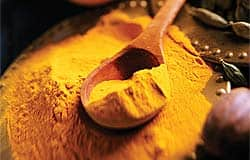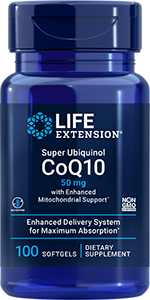
Newsletter
Newsletter
Curcumin Helps Improve Immune Function
Curcumin helps improve immune function
Tuesday, May 29, 2012. In an article published on May 25, 2012 in the Journal of Nutritional Biochemistry, researchers from Oregon State University (OSU) report a benefit for curcumin, a compound found in the spice turmeric, in innate immune function. OSU Linus Pauling Institute associate professor of biochemistry and biophysics Adrian Gombart and colleagues discovered that curcumin nearly tripled the expression of a gene that encodes a protein known as cathelicidin antimicrobial peptide (CAMP), which can help combat bacteria, viruses and fungi that have not been previously encountered by the immune system. CAMP is the only known antimicrobial peptide of its kind in humans, and is able to destroy a wide range of bacteria, including that which causes tuberculosis. While curcumin's effect on CAMP is not as potent as that previously found for vitamin D, the compound may still be of value in improving immune function, in addition to providing anti-inflammatory and antioxidant benefits. "Curcumin, as part of turmeric, is generally consumed in the diet at fairly low levels," Dr Gombart stated. "However, it's possible that sustained consumption over time may be healthy and help protect against infection, especially in the stomach and intestinal tract." "This research points to a new avenue for regulating CAMP gene expression," he remarked. "It's interesting and somewhat surprising that curcumin can do that, and could provide another tool to develop medical therapies." | ||||||||||||||||||||||||||||||||||||||||
 | ||||||||||||||||||||||||||||||||||||||||
| ||||||||||||||||||||||||||||||||||||||||
 | ||||||||||||||||||||||||||||||||||||||||
| ||||||||||||||||||||||||||||||||||||||||
| ||||||||||||||||||||||||||||||||||||||||
The latest news on aging, nutrition, and vitamins
Lab
Testing
How Life Extension lab testing works










